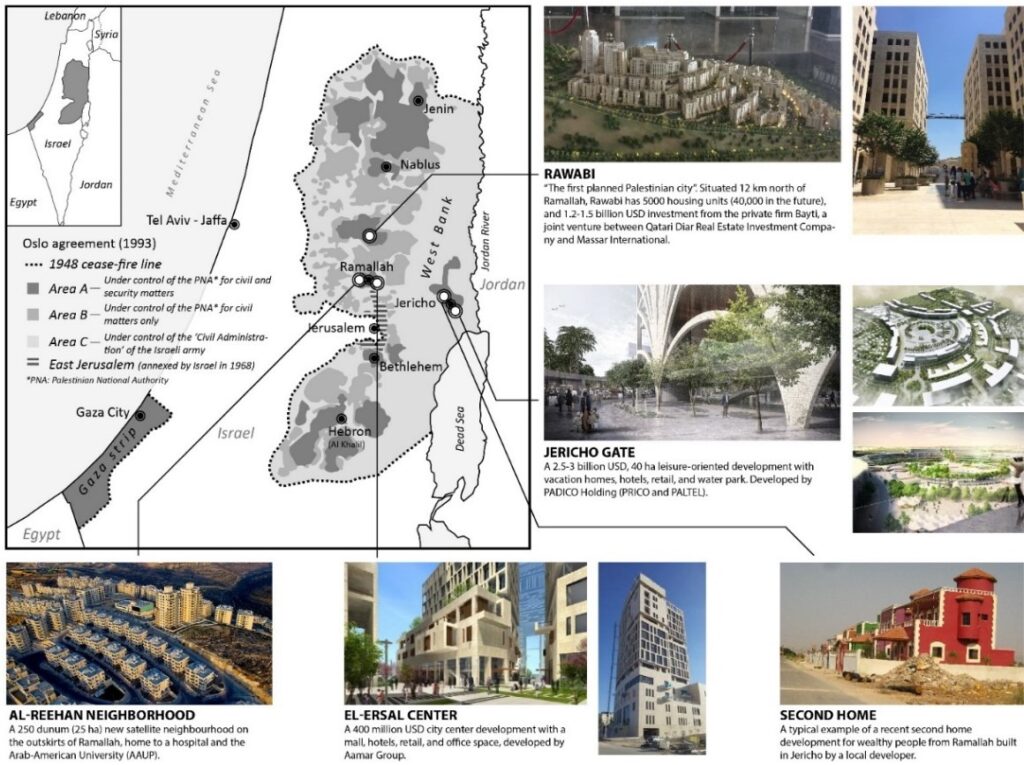New Urban Trends in Palestine
Research team:
Dr. Marco Chitti – Université de Montréal, Faculty. of Planning
Dr. Sarah Moser – McGill University, Dept. of Geography
Dr. Alessandra Gola, Dr. Abdalrahman Kittana – Yalla Project + Birzeit University – Dept. of Architectural Engineering & Planning
Research Period:
January 24- January 2026
Research Synopsis:
Yalla Project is partner of the Faculty of Urban Planning at the Université de Montréal and the Department of Geography at McGill University within a two-years research programme on new forms of urbanism in Palestine.
The research investigates the international circulation of new urban development models within the Global South. In particular, we will examine the origins and implementation of new urban development models and practices that have emerged in occupied Palestine over the last two decades, such as new cities and master-planned large-scale satellite neighbourhoods backed by international investors. We focus on how these models and practices are framed, diffused, and promoted by a variety of public and private ‘city builders’, that is the actors implicated in the production of urban space in the occupied West Bank.
Our proposed research investigates examples of new urban mega-developments beyond emblematic global cities in the region such as Dubai and Doha by turning to in-depth and under-examined case studies, through which we aim to understand how new urban models, which are often pioneered in Gulf countries, are adopted by local city builders, a process that is the result of both the influence of broader global trends in urbanization processes, and of a particular response from local actors to the constraints generated by the conflict and the Israeli occupation.
The research will be lead by three main research questions:
1) What are the ‘urban success stories’ and normative visions of the ‘city of the future’ currently being promoted in Palestine, and by which actors?
2) How do the new urban models that are emerging in the Arab world, especially those of the United Arab Emirates, Qatar, and Saudi Arabia, influence the different ‘city builders’ in Palestine?
3) What are the underlying motivations (profit, desire for development, geopolitical aims, national affirmation, etc.), and how do they standardize and normalize the vision of urban development and modernization exemplified by these models imported and locally adapted by various actors, both international ‘exporters’ and local ‘importers’?
